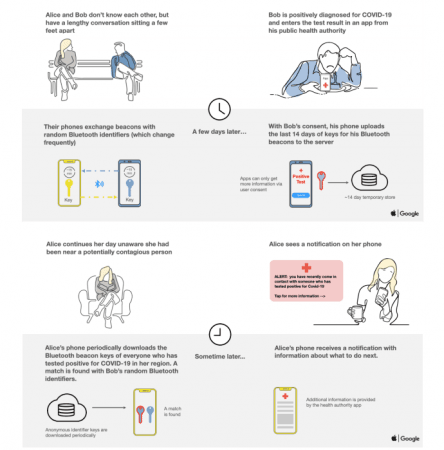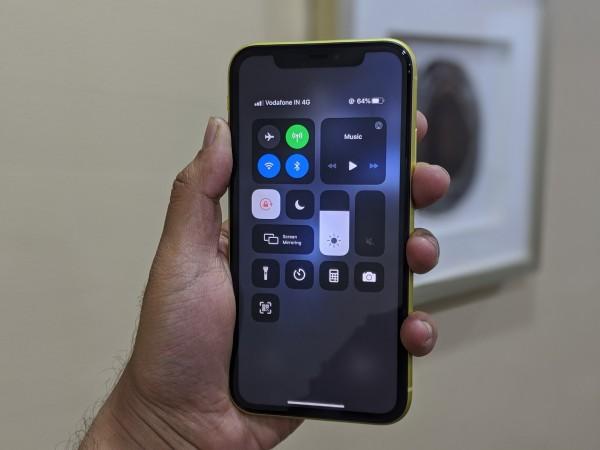In the wake of the rising number of COVID-19 cases around the world, two major tech giants Apple and Google have joined hands to develop a system that will help slowing down the spread of the novel coronavirus. By using the method of contact tracing, both tech giants governments and public health authorities to manage the COVID-19 pandemic.
Since Google and Apple collectively power 99 percent of the smartphones through their Android and iOS platforms, respectively, a system that could work between both platforms seamlessly will help trace COVID-19 patients more effectively than human memory. Google and Apple's technological solution is both automated and scalable, making it far more efficient in notifying people exposed to a person who tested positive for coronavirus.
The privacy concerns
Over the years, there may be many hacks, leaks and security lapses concerning both security platforms. But Apple and Google have always considered user privacy a priority. When the two companies announced that they will develop a contact-tracing system, there are immediate concerns about user privacy.
The contact-tracing system relies on Bluetooth technology in smartphones to transmit short-range anonymous IDs. By exchanging the anonymous identifiers and cross-referencing with the IDs of people who tested positive, people will be notified if they came in contact with a COVID-19 patient. All these "beacons" are recorded and stay on the device and they are anonymous, too. Only with the user's consent will the beacon be shared with others, but it should be done responsibly on users' behalf in order for the system to work effectively.

Google-Apple ban location tracking
Users are always in control of their privacy with the new system, which is being developed. Apple has stressed on the importance of the apps using its APIs to be centered around protecting users' privacy and collect as little data as possible. Reaffirming its stand, Apple has clarified that its API and apps using its API won't be able to use the Location Services framework, easing the concerns of privacy experts who have warned that even a cache of location data related to health issues could pose a serious risk. In addition, no ads will be served on contact-tracing apps.

"The criteria are detailed separately in agreements that developers enter into to use the API, and are organized around the principles of functionality and user privacy. There will be restrictions on the data that apps can collect when using the API, including not being able to request access to location services, and restrictions on how data can be used," Apple explained.
In addition to this, Google and Apple have also revealed that they will allow only one app per country that will use its API. This is to ensure wider adoption and avoid fragmentation.

















